CELEBRATE FOOD & FAMILY WITH OVER 100 CLASSIC RECIPES FROM ITALIAN GRANDMOTHERS

ROSSELLA RAGO

For all the Nonne.
Your love makes the world go round.

INTRODUCTION
Ricordati una cosa a Nonna. Un giorno la Nonna non ci sar pi. E voglio che tu devi saper fare tutte le cose che fa la Nonna!
(Remember one thing, my darling. One day nonna wont be here anymore. And I want you to be able to do all the things that nonna does!)
The very first thing I attempted to make in the kitchen was a disastrous fruitcake. My Nonna Romana loves to tell this story. I was six years old, and I was on a mission to make the best fruitcake I could. I had mixed together the eggs, milk, flour, and fruit until I had made a complete mess of myself and the kitchen. When I finished mixing, I asked nonna to bake it for me. She agreed, with a knowing smile. But when my cake came out of the oven, it hadnt risen at all. I was crushed.
What happened? I asked her.
You didnt put in any baking powder, my darling. But thats okay, next time you know. Sbagliando simpara (Making mistakes, you learn)!
I have always joked that I attended Nonnas Brooklyn Basement Culinary Academy. You see, if youre in a traditional Italian household, Sundays are for eating. There is always food to prepare because the house is filled with family. And in our house, nonna always needed my help if we were going to feed everyone. She usually had already made the focaccia that served as my aromatic alarm clock on Sunday mornings, but there was also a feast of pasta al forno, zucchine alla poverella, braciole, and ciambella that I helped to prepare every week. The small dining table in my nonnas apartment would be set for at least ten people. After the meal, even more people would drop in for coffee and dessertsusually almond paste cookies that nonna and her sister Zia Rosa had madewith everyone talking over Italian TV shows blaring in the background.
With very few exceptions, this is every Sunday I have ever known. These are not days to spend worrying about what to do with your life; however, it was on a Sunday that the course of my life would change forever. I was straddling two careers at the time. I was in college studying to be a high school Italian teacher, and though I loved my native tongue, I wasnt sure I could handle teaching it to a bunch of teenagers simply looking to fulfill a foreign-language requirement. I have also always loved the entertainment business and have moonlighted my whole life as an actress, but I did not want to commit to living in perpetual worry about being a size two. No thank you!
So, on this particular Sunday, as everyone left the table one by one, there remained only nonna, my father, Vito, and me. I was moving the bottles of Amaro to take the sauce-stained tablecloth into the laundry room, when my father asked me, So what is it that you really want to do with your life? He knew I had been floundering with my career choices, and in that moment, I honestly had no idea what to tell him. Suddenly, something popped into my head and it seemed so silly that when the words came out of my mouth, I was laughing as I said them: I should host a cooking show. Thats the greatest job in the world!
Now my father is usually a stern man with a dry sense of humor. I didnt expect him to be enthusiastic, or even amused, but his eyes lit up immediately and he said, Yeah! It should be a show about nonna! There arent any shows about Italian grandmas and their recipes! By now we were both laughing, and my nonna probably thought we had lost our minds. Thats when it hit me. Lets call it Cooking with Nonna! I said.
That night, I began a chapter in my life that I had unknowingly been preparing for since that very first fruitcake. Looking back, its very clear to me that the years I had spent living with my nonna had served as my unwitting culinary education. When we decided to start the Cooking with Nonna show for real, I began to see the extraordinary importance of nonnas tattered recipes, which could be found anywhere and everywhere: from hanging from a broken magnet on the refrigerator door to an old Post-it note to an entire address book detailing the perfect amount of yeast for bread. These things would become my bible. Once she isnt here, who would make them? I realized that it was up to me to carry the torch.
These old papers were my familys history; they told a story of what my family ate, why they ate it, what food was even available at the time, what a special meal looked like, what everyday nutrition was like, and what my familys palate was like. I had found exactly what I was searching for, but there was one problem: trying to replicate any of these recipes without my nonna was going to be a disaster. I had no magical knack for eyeballing measurements with coffee cups the way nonna did. If I was going to recreate any of her recipes, I was going to have to adapt them.
After spending some time working on my own nonnas recipes, it occurred to me that there might be other children and grandchildren in my position, desperately wanting to preserve their traditions through the food of their mothers and grandmothers, but finding it way too complicated. I felt a calling to make sure that these recipes did not die in the back of a drawer somewhere. This book is a testament that a meal is more than just food on dishes. It can be a piece of your familys legacy.
When I decided to sit down and write this cookbook, I knew immediately that I wanted to tell the stories of the women who have contributed recipes to the Cooking with Nonna show over the years. I wanted to tell each womans story because life events have flavored each nonnas unique cooking style. The truth is, Ive met countless extraordinary women on my journey, all with one thing in common: they have no idea theyre extraordinary. Their excellence in the kitchen was always expected of them. In one of her Italian cookbooks, Carol Field writes, According to tradition in Piedmont, bread is so important that a girl wasnt considered ready for marriage until she could make the dough for the family and bring it to the communal oven for baking.
To me, a nonnas modesty is what usually sets her apart from traditional master chefs. As a society, we can sometimes forget or downplay the role of these secret culinary heroines of the food world. Most Michelin-starred chefs will tell you a story about being inspired by their grandmothers. To me, a nonnas food, skills, and contributions are timeless. The women behind the food that I make have made me see the culinary arts from a whole new perspective, and have inspired my conviction that unlike the ingredients we cook with, women have no expiration date.


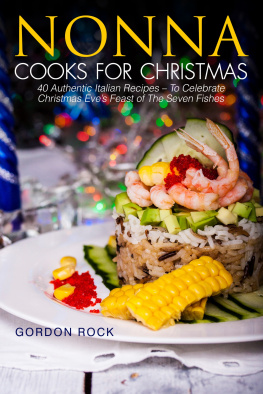
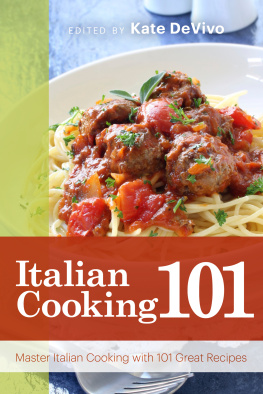
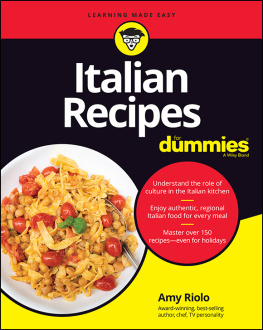
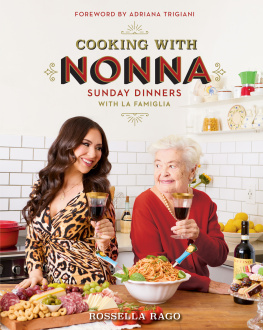
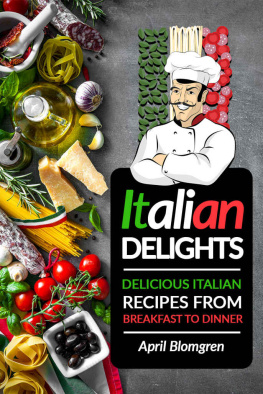
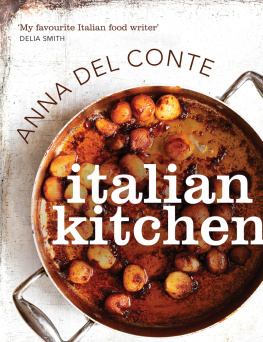
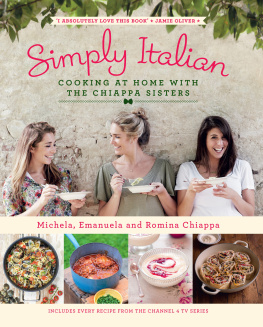
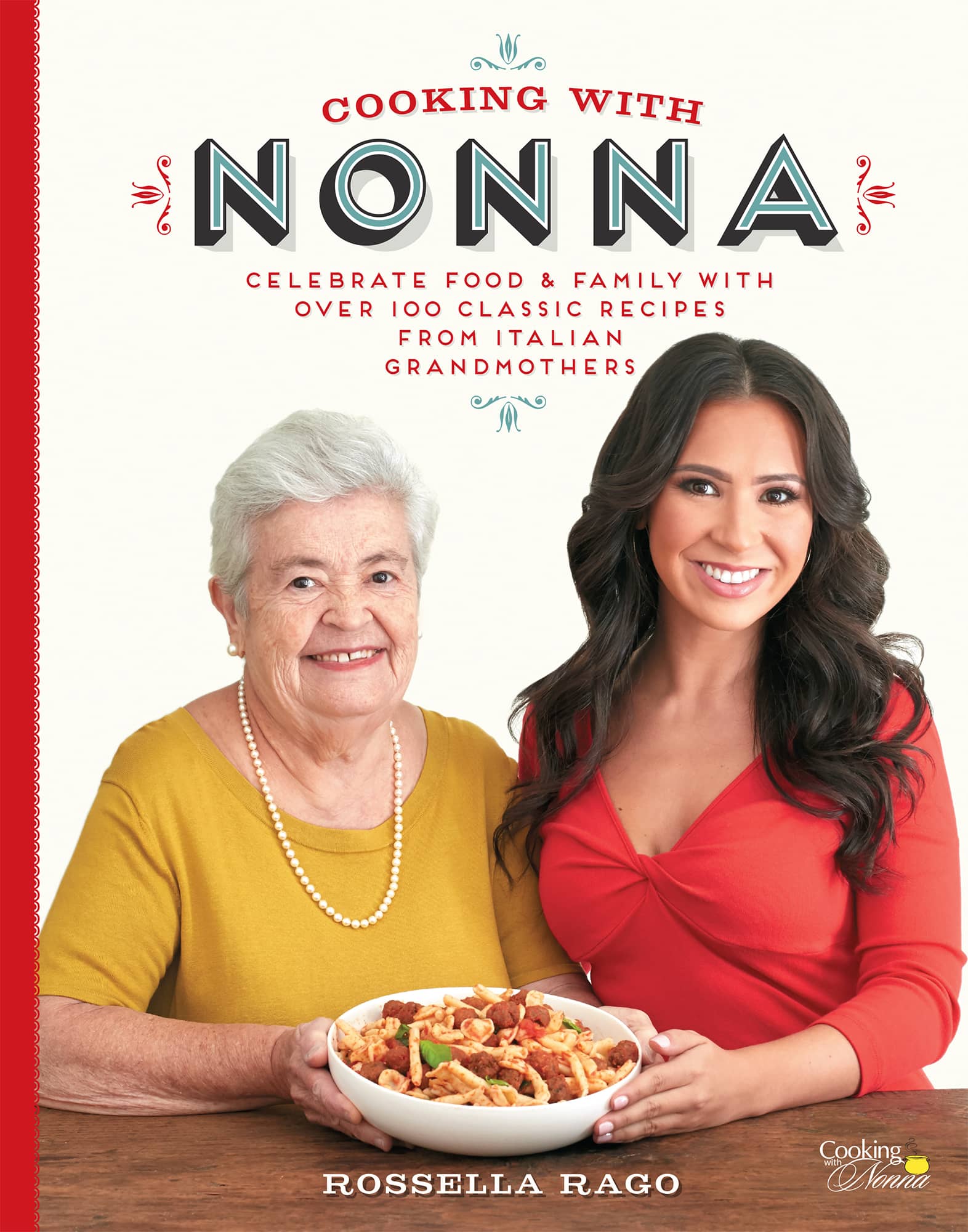

 NONNA
NONNA 




